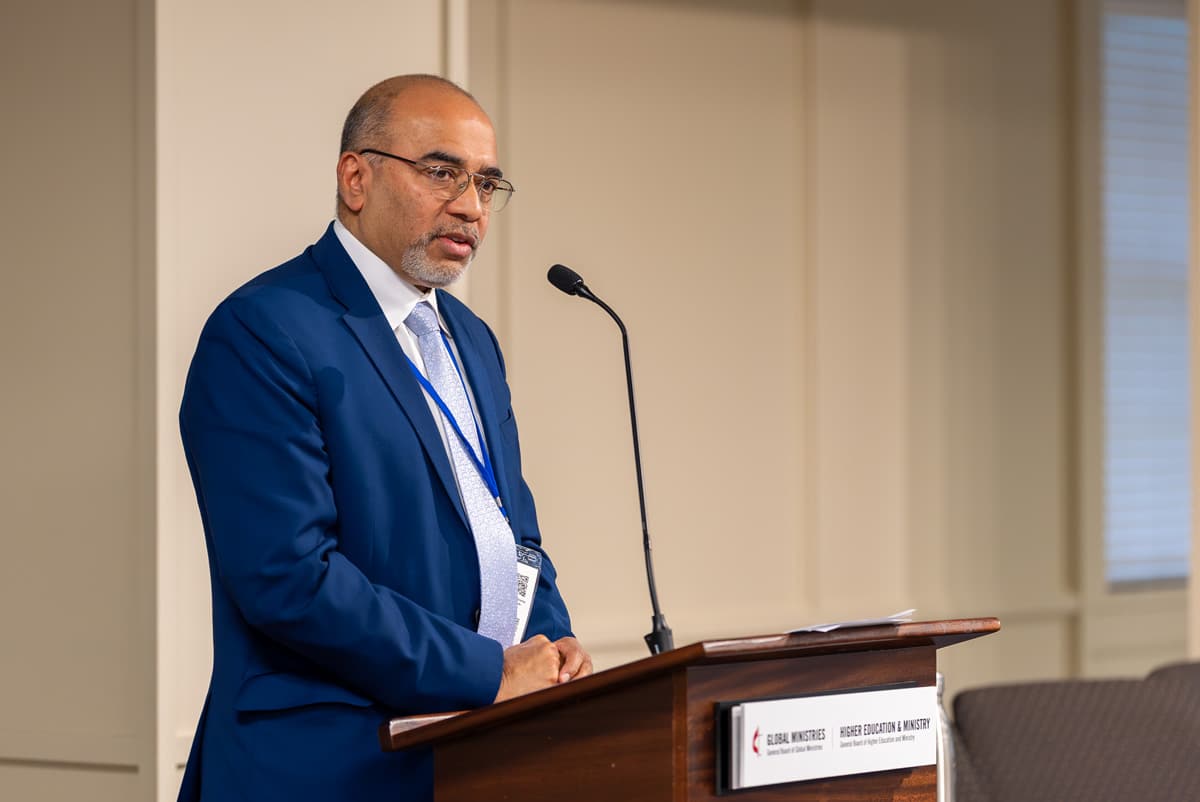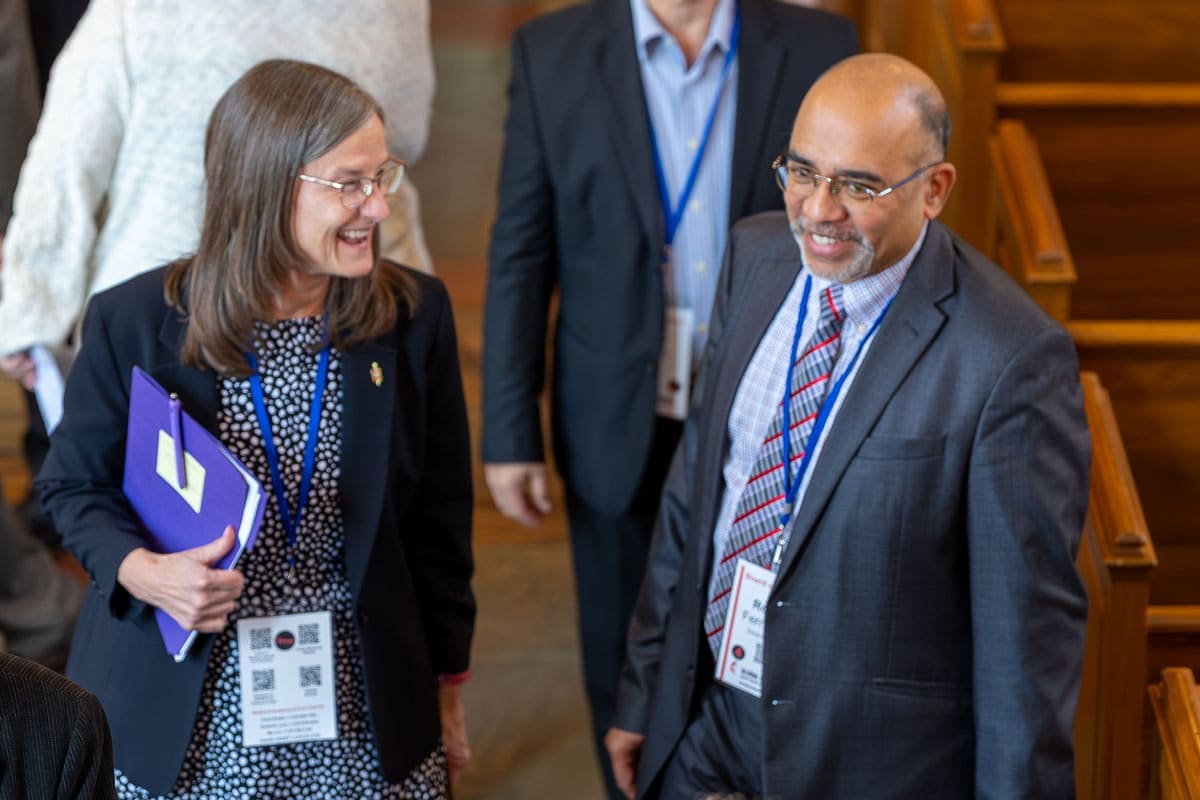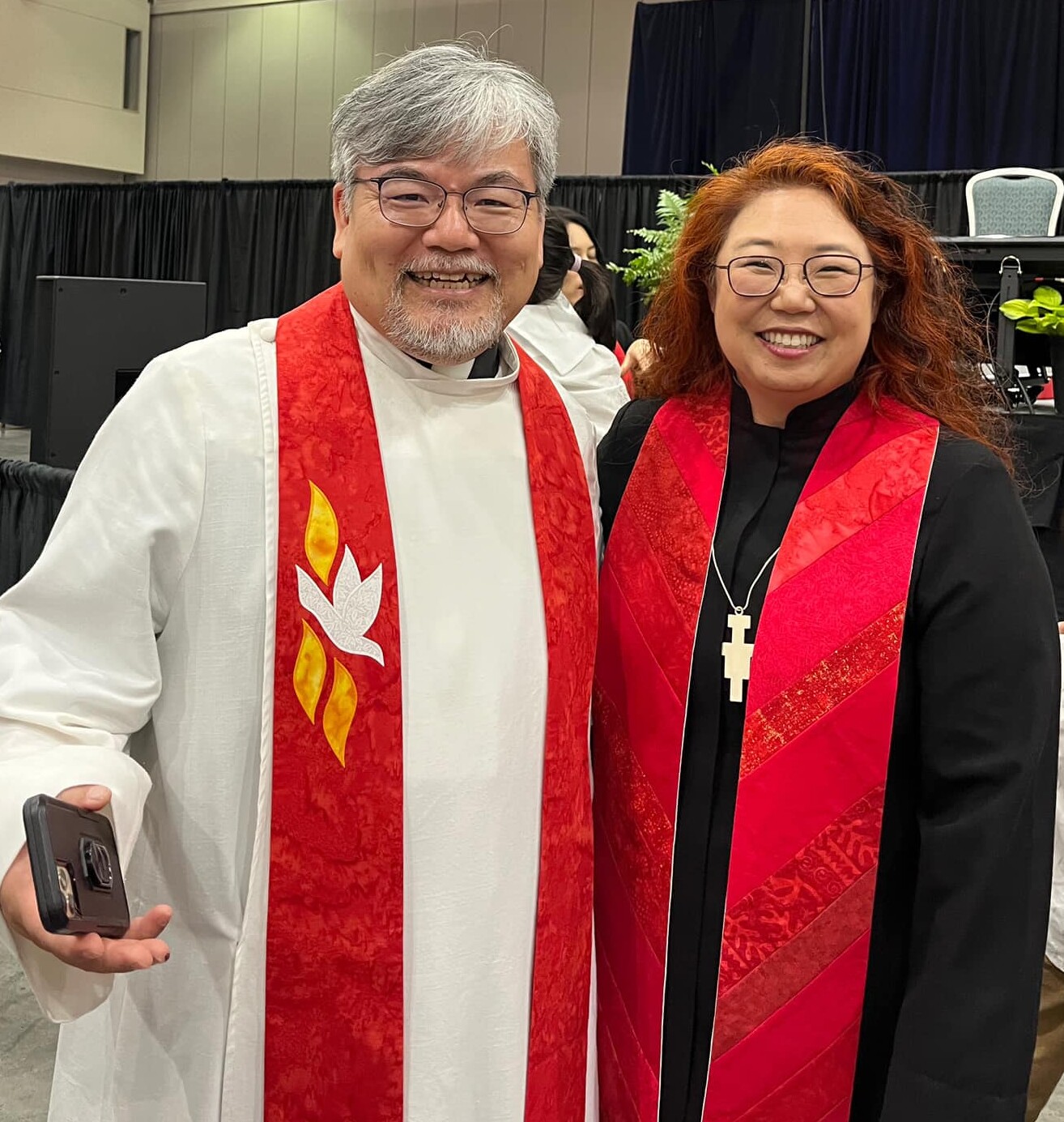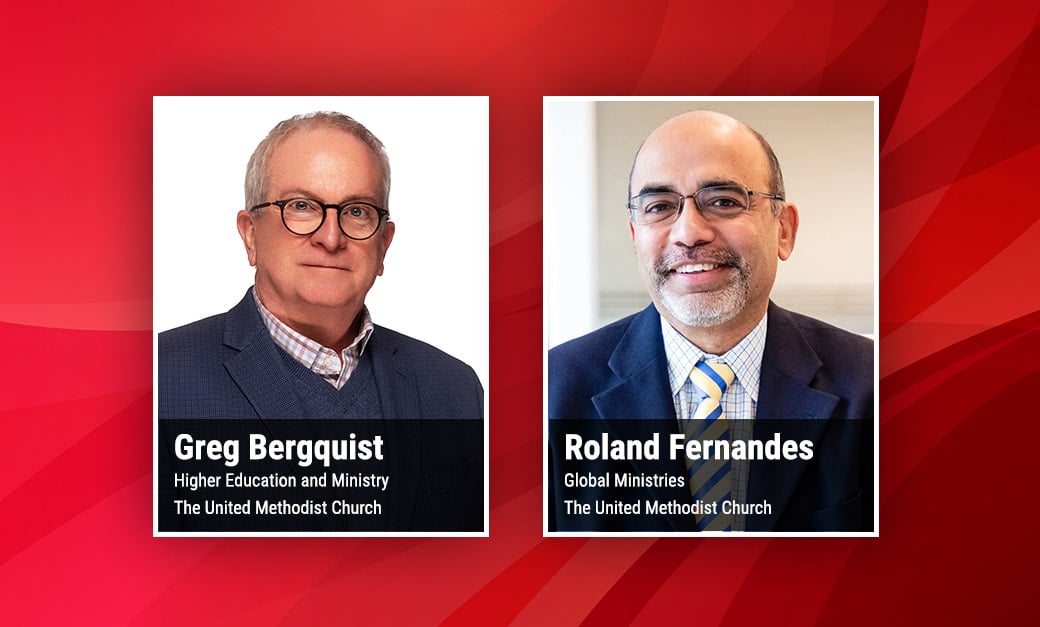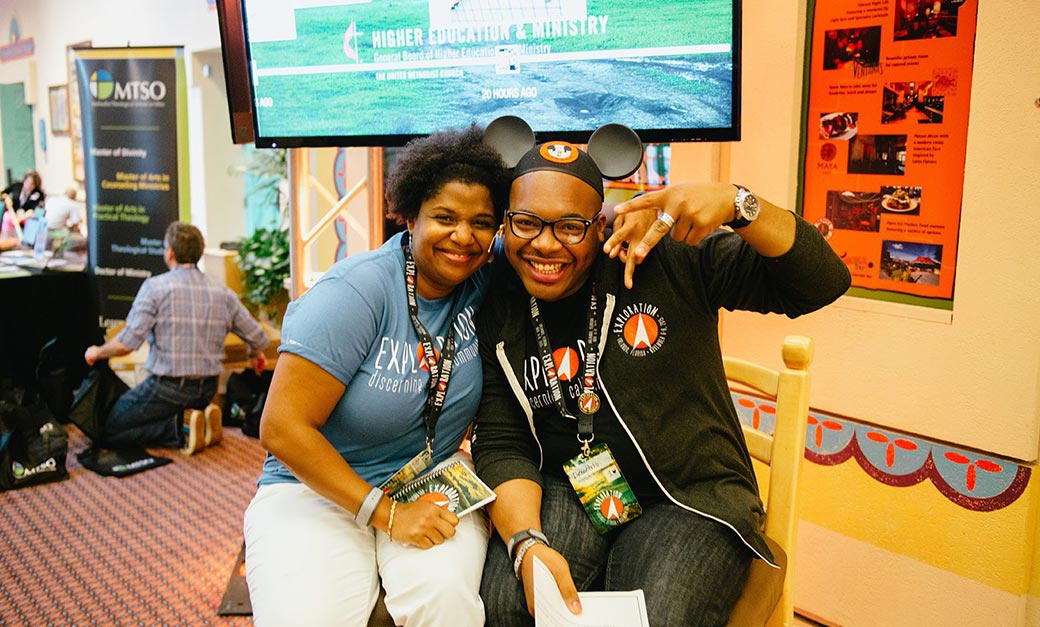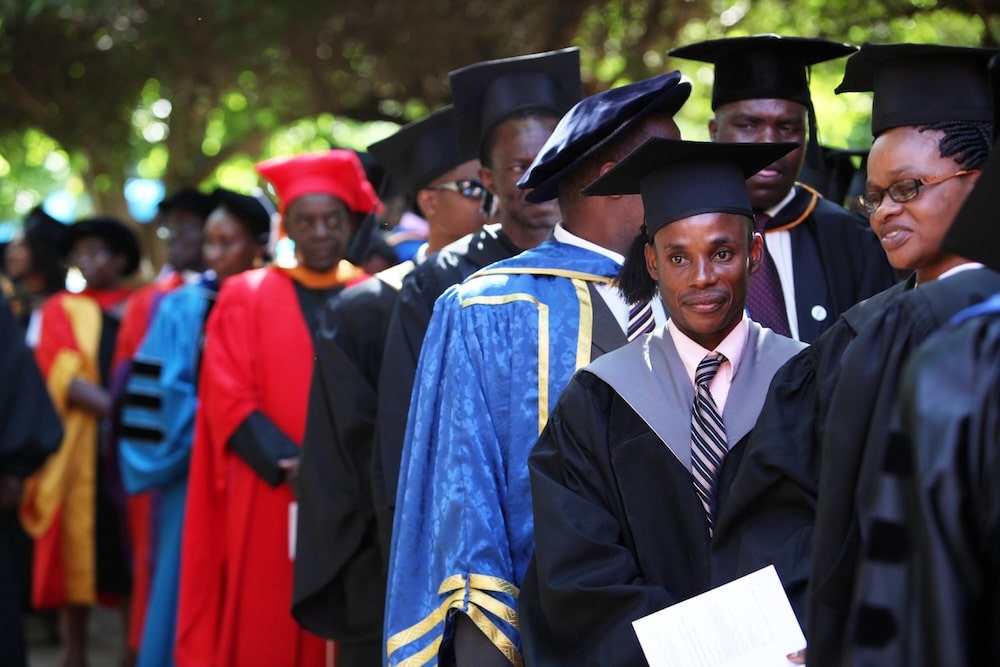GBHEM and African Education Associations Meet in Côte d’Ivoire to Impact Leadership Development on the Continent
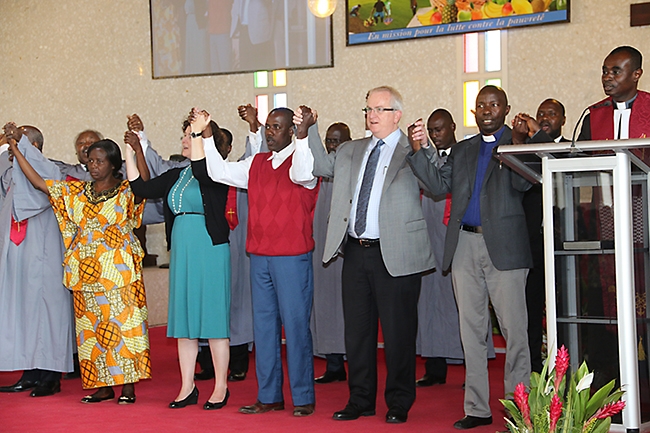
The African Association of United Methodist Theological Institutions (AAUMTI) and the African Association of Methodist Institutions of Higher Education (AAMIHE) recently held a joint meeting in Abidjan, Côte d’Ivoire. The goal of the joint meetings was to create greater synergies, mutual support and cross-promotion of the shared goals and work of the associations to enhance and expand access to quality Methodist education throughout the continent of Africa.
With the support of the Global Education Office at the General Board of Higher Education and Ministry (GBHEM), the associations began meeting jointly in 2013. Keeping the mission of making disciples of Jesus Christ at the forefront, the associations are working together to address the specific needs and explore the opportunities for theological and higher education in Africa. They also have worked together to implement innovative projects that engage stakeholders from the individual to institutional level in the areas of communication, evangelism, fundraising, development and others.
African Leaders Vote to Establish a University Senate
One of the important results of the joint AAUMTI-AAMIHE meeting was the establishment of a governance model for consistency and quality assurance, similar to the University Senate in the U.S., but contextualized to the plurality of African cultures. The two associations adopted the model proposed by the International Association of Methodist-related Schools, Colleges, and Universities (IAMSCU) and elected a committee to adapt this model to the African context. Such a model will help the associations address the immediate need for ongoing, consistent assessment across higher education institutions in Africa. The areas for assessment and standardization include governance, church-relatedness, academic excellence, technological advancement and financial sustainability.
Discussions about establishing this governance model for the assessment and standardization of Methodist theological education and higher education in Africa go back to the election of Kasap Tshibang Owan (Democratic Republic of Congo) to the University Senate in the U.S., at the 2012 General Conference. In 2016, Nathanael Ohouo (Côte d’Ivoire) was elected to the body as well. The University Senate was established in 1892 and has worked solely with institutions and legislation limited to the United States, but the inclusion of African leaders among its members created an opportunity for the exchange of information and mutual learning. Thomas Wolfe, president of Iliff School of Theology and chair of the University Senate during the 2012-2016 quadrennium, shared his experience promoting church-relatedness through the Senate. In his opinion, the vote to constitute a similar body in Africa is a historical event for The United Methodist Church.
E-Readers for Higher Education
In addition to the business portion of the meeting, the associations, representatives from the educational institutions and GBHEM staff participated in e-reader training and clinics. The E-Reader Project is a joint effort created by Discipleship Ministries and GBHEM in 2013, providing thousands of e-readers around the world. So far, this project has focused on specific programs, “E-Readers for Theological Seminaries” and “E-Readers for Global Health Education.”
As part of the meeting in Abidjan, supporting teams working on theological education provided reports and discussed new plans for 2018. The clinics offered by Robin Pippin, director of Contextual Resource Development and Distribution and the Central Conference Sustainable Resourcing Initiative, Discipleship Ministries, provided additional technical support around the e-readers like using portable hotspots in schools. Participants also had the opportunity to meet Ndzulo Tueche, shared services manager for Central Conferences with the General Commission on Finance and Administration (GCFA) and learn more about the upcoming plans of GCFA to develop shared services for churches and institutions on the African continent.
A new development in the E-Reader Project is the starting of a new project, “E-Readers for Higher Education.” Based on the success of the project for theological seminaries, the presidents of the main Methodist universities on the continent of Africa began discussing the possibility of developing a new project focused on higher education. Thus, the leaders of Africa University, Kenya Methodist University, United Methodist University of Liberia, Methodist University of Angola, Methodist University of Côte d’Ivoire, Methodist University of Mozambique, Katanga Methodist University, Kamina Methodist University, Methodist University of Wembo-Nyama, Kindu Methodist University, and the United Methodist University in Sierra Leone have been in conversations since 2016 to discuss this subject.
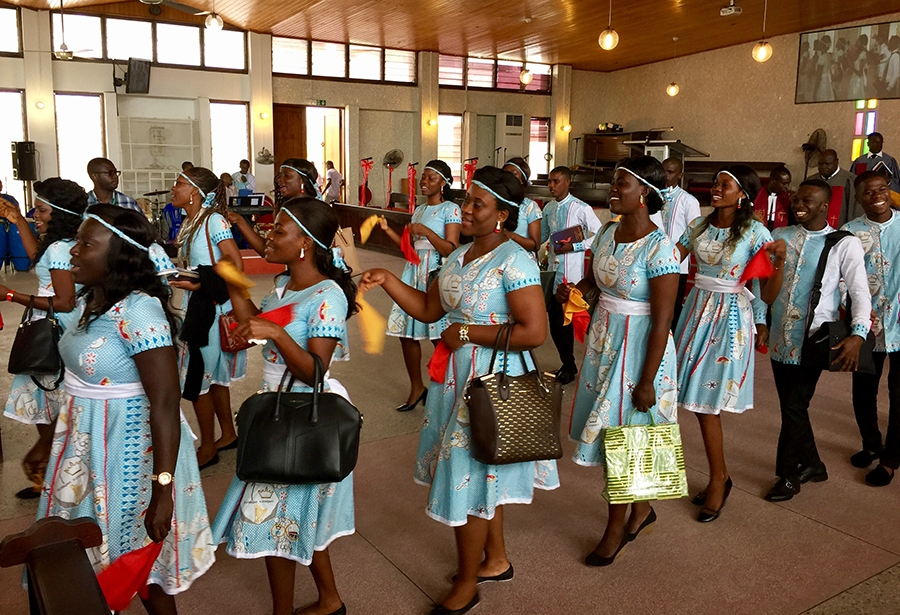
In May 2017, the university leaders met with Tom Morris, Plano, Texas, who provided IT consultation to this project and discussed the technical aspects of the project. As a result, the “E-Readers for Higher Education” advanced considerably. During the joint meeting in September 2017, representatives from each university were able to test the available tablets and evaluate the specifications required for each context. Different from the “E-Reader for Theological Seminaries,” the program on higher education will be included in tuition costs for the participants. Once implemented, this project will position the network of Methodist-related colleges, universities, and theological seminaries in Africa at the forefront of technological education on the continent, thus fulfilling the vision of Munashe Furusa, vice-chancellor of Africa University and president of AAMIHE, to position Methodist education as the leading pan-African force.
Promoting Concrete Collaborative Opportunities
Other topics that arose during the six-day meeting included a discussion on the impact that the work of the Commission on a Way Forward will potentially have on higher and theological education in Africa, the creation of the joint efforts to expand and effectively fundraise, and empowering and promoting pan-African development across the associations.
The joint meeting was planned as a cluster of events that provided opportunities for individual interactions and exchanges. Participants involved in meetings on the E-Reader Project also attended a workshop on the Central Conference Theological Education Fund (CCTEF) led by Greg Bergquist, associate general secretary of the Division of Ordained Ministry. The session focused on concrete projects involving publications and faculty exchange.
Leadership Changes Within the Associations
AAUMTI elected James Labala (Liberia) as its new president for the 2017-2019 period and AAMIHE elected Kandolo Kasolwo Ilunga (Democratic Republic of Congo) as its secretary. Both associations voted to have their next joint meeting in Angola in 2018.
Today, there are 25 theological institutions affiliated with AAUMTI and 20 colleges and universities members of AAMIHE. The presidents of AAUMTI and AAMIHE and the leadership of the theological schools established the following list of needs and opportunities to focus the work of the joint gatherings:
- Journal of Education for Central Conferences in Africa
- Faculty exchange program among theological institutions in Africa
- Faculty exchange program among theological institutions in Africa
- Professors’ roles for campus ministers at seminaries and universities
- Annual Conference and institution partnership for church development and growth
- Criteria for AAMIHE’s membership
- Governance of Methodist-related institutions in Africa
- Branding of AAMIHE
- Collaboration operation on E-Readers for higher education
- Women in leadership positions in higher education
- Scholarship programs and publications
Participants also had the opportunity to learn more about the United Methodist Church in Côte d’Ivoire. They worshipped at different congregations in Abidjan, took part in a welcome dinner offered by Bishop Benjamin Boni, and visited the campus of the Methodist University of Côte d’Ivoire. The series of activities concluded with a cultural event, sightseeing in Yamoussoukro, the country’s capital city. The site is home of the first president of Côte d’Ivoire, Felix Houphouet-Boigny, who built the world’s largest Basilica and dedicated it to the Vatican. Pope John Paul II accepted this dedication, under the condition that Yamoussoukro become an educational center. The United Methodist Church in Côte d’Ivoire plans on building the new campus of the Methodist University of Côte d’Ivoire on this site.
The event was organized by Yed Angoran, who leads GBHEM’s Regional Hub for Leadership, Education, and Development (LEaD Hub) in West Africa. For more information about Global Education at GBHEM, visit www.gbhem.org.
About GBHEM: As the leadership development agency of The United Methodist Church, the General Board of Higher Education and Ministry’s mission is to build capacity for United Methodist lay and clergy leaders to discover, claim and flourish in Christ’s calling in their lives, by creating connections and providing resources to aid in recruitment, education, professional development and spiritual formation. Every elder, deacon and licensed local pastor benefits from our training and candidacy programs. Many young adults find help in clarifying their vocation and God’s call in their lives through our leadership and discernment programs. Follow us on Twitter and Facebook: @GBHEM.
Related Posts
United Methodist mission and education agencies form new boards of directors. October 15, 2024 | by Elliott Wright NASHVILLE, Tenn. – The general boards of Higher Education and Ministry and Global Ministries affirmed their partnership in mission and ministry during a joint meeting of their boards of directors in Nashville...
Higher Education and Ministry and Global Ministries boards meet in Nashville for organization, orientation and connection. Bishop Sandra Steiner-Ball with Roland Fernandes. The bishop gave the sermon during opening worship for the joint GBHEM and GBGM meeting taking place October 14 - 17 in Nashville, Tenn. Photo: Adam Bowers...
Rev. MiRhang Baek, Virginia Annual Conference, The United Methodist Church, with spouse Rev. TaeWon Kang. Participating in the Clinical Pastoral Education (CPE) program at the General Board of Higher Education and Ministry’s Center for Integrative Pastoral Practice (CIPP) has profoundly transformed my self-awareness, personal growth and ministry as...
